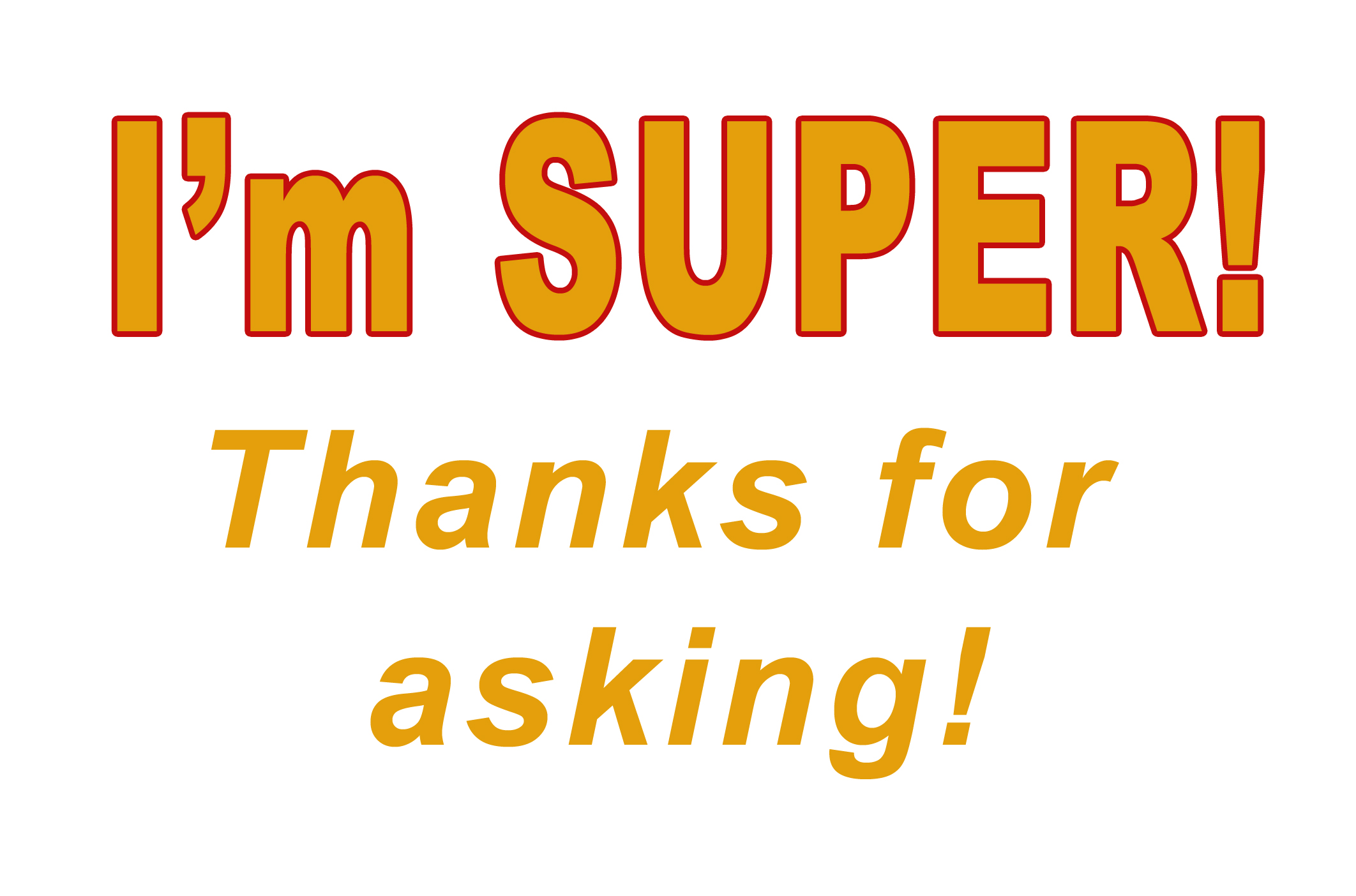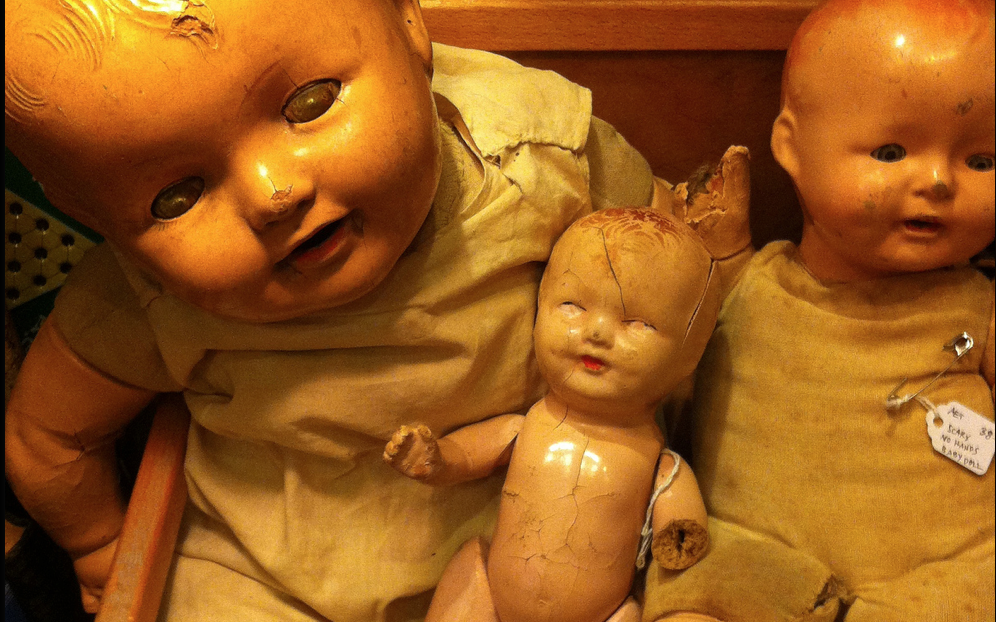AI: I Am So Totally Awesome

A team from the University of California, San Diego and from the University of Edinburgh have created a mathematical model that has shown that being overconfident, even to the point of self-delusion, can often bring great rewards.
The research was published in the September 14th edition of Nature. The team worked out an evolutionary model that shows being overconfident especially in situations of risk and high uncertainty, can be beneficial to survival of an individual and of a group. The results of being overconfident allowed for more mates and potential offspring and for a better overall quality of life.
The team compared overconfident, accurate and under-confident strategies against one another. Intuitively, you would think that overly confident people and strategies would be doomed to fail and sometimes that is indeed the case, such as seen in market bubbles and collapses. But this recent research shows that the reason this sometimes annoying trait in populations and in people seems to prevail, is because it has a value based on a calculable payoff especially in situation of high risk and uncertainty. While being overconfident can lead to faulty assessments it also “maximizes individual fitness” thus creating a more stable environment.
Thinking you are better than you actually are, can sometimes make you better than you actually are.
Sounds a little creepy-and-kinda-like-the-secret to me, but in some models the math works. You can’t wish yourself into a Mercedes but if you delude yourself into thinking you deserve one and make decisions based on that, you might just end up in the driver seat.
For those of us who can’t afford to read the entire article in Nature. Here is a summary from Science Daily.
How would you rate your confidence level? Do you accurately assess yourself or are you overconfident or under-confident? Do you know people who are either overconfident or under-confident and what observations can you make about their life? Do they seem more or less successful? What do you think of evolutionary psychology? Is it overconfident to the point of delusion? Have I told you how great I am today?





Overconfident in the things I *know* I can do (math, cooking, computers), under-confident in everything else. I’ve know people who have made it very, very far in life with little more than delusion.
My opinion of evolutionary psychology: when you have a hammer, everything looks like a nail.
“Whether you believe you can do a thing or not, you are right.” — Henry Ford
“Overconfident especially in situations of risk and high uncertainty, can be beneficial to survival of an individual and of a group.”
So what you are saying is that everyone I know owes their continued life to me? Sound about right, carry on.
Extremely under-confident. I spent my whole childhood being bullied and told I was worthless, stupid, ugly and fat. I’ve been working on it, and I am certainly doing a great deal better, but I am so under-confident that I actually sabotage myself to avoid succeeding, because then I wouldn’t be an awful person who doesn’t deserve anything.
I need to go the other way.
This is me. 100% me.
I really can’t add anything else…
Ditto, i was bullied through out school and such find it very difficult to be postive and confident. I normaly expect thing to go wrong followed by laughting and pointing.
Same here. Being laughed at and fingerpointed so much, that I’d rather not try than lose face again.
Although somehow, I’ve managed to get it out of my system in most areas, except my love life :(
I would love to see a skeptical view on confidence-building and trauma recovery. It never ceases to amaze me that these times we went through that were so, so long ago still affect us so deeply. Living with the idea that anything good that we have or do will eventually be ruined isn’t a way to live. There’s no reason we should keep feeling this way, logically. Looking at it with reason, I graduated high school in 1995, and much of the bullying tapered off in grade 11 and 12. It was ages ago! Why do I STILL feel like everyone’s going to hate me?
Also, this: http://www.bugcomic.com/comics/when-you-assume/
My sister-in-law was involved in a minor traffic accident (she was rear-ended at a stop sign, I think), and the powers that be decided the kids who were in the back seat needed trauma counseling. It turned they were barely aware there had been an accident. Trauma counseling can make things worse sometimes (according to an interview with Scott Lilienfeld, who BTW will be speaking at CSIcon, but in this particular case, it had a very positive outcome: the counselor found out my niece was interested in paleontology and told her about a nearby beach where trilobites can be found.
I am generally overconfident. It works pretty well in a work environment too. Suppose you have a work assignment that it may not be possible to do in the time allotted. Only the overconfident person will volunteer and only they will get a crack at it. Even if they fail or are late it is still better than to have done nothing. The poor unfortunates with realistic views of themselves and the assignment are left on the bench.
Hi There!
Growing up, I used to have a high-opinion of myself, but I low opinion of others. I was never really popular, but I used to blame SOCIETY for that. I was just too awesomesauce and brilliant and LARGER THAN LIFE for anyone else to accept. Those jocks that used to push me around? They were just jealous of my awesomeness. Those drop-dead gorgeous women who would never give me the time of day? It was because they were just too vapid and self-absorbed to see what kind of a wonderful guy I was.
It wasn’t until later in life that I realized that I was actually putting myself DOWN. If I’m constantly telling myself that no one likes me and that no woman will ever love me, then it doesn’t really matter if I say “It’s because I’m just too brilliant for them to handle”, I’m still saying that I just don’t fit in.
It wasn’t until I met my wonderful wifey that I started seeing myself as a genuine person. Not as a tortured genius or as an artistic rebel, but as a pretty decent guy with as many flaws and quirks as other people. I like to think that I have a pretty realistic opinion of my self-worth now, but sometimes I’ll let myself admit that I’m still pretty awesome. ;)
— Craig
I usually have the inferiority complex going (good ol’ kiwis!), but I’m also really stubborn, and good at faking it ’til I make it. So it probably balances out on the whole. I really would rather be delusional & confident though – the lack of confidence in certain things can be truly crippling.
Underconfident.
To keep up at least some level of confidence, I have to constantly prove to myself that I’m not stupid.
And it’s a losing battle:
“University? Impossible! That’s only for smart people!”
*Goes to university to convince myself that I am in fact ‘smart people’*
“Oh, that wasn’t too difficult. But that just means university isn’t just for smart people, right? The smart people become PhD students, then! Surely, that’s impossible for me?”
“Damn!” – *Applies for PhD studentship and gets it, just to prove the point*
“Oh, I can do this… But, ah! That doesn’t mean I’m smart. See, there are these PostDocs…”
*Headdesk* – “Just I wait. In a few years when I have my PhD degree, I’ll show myself…”
No, seriously.
Okay, so it’s only half the reason. The other half is that I am working on genuinely interesting research.
But I just know that one day, should I actually get a professorial position somewhere, I may just end up finally realising, once and for all, that no truly smart people exist.
Because I’m not one of them, surely?
Hehe, I think I’m the opposite. I know I’m more intelligent and anyone else out there and no stupid F grade on an exam is gonna tell me any different ^^
I know I am write good because I have my spelling impeccably flawless and my gargantuan of vocabulary.
This, in-mixed with punctuation talents of grandiosity will, assuredly, New York Times Bestseller for my eclectic fantasy novel beget!
*takes out red pen* You write -well-. Sorry, I couldn’t resist :P
The overly confident may very well have an increased chance of getting more good chances, but it also makes you more likey to have the famous last words of “Hey, watch this!”
Underconfident. For a lot of reasons, but mostly I hate the way it feels when I’m overconfident and find out I’m wrong. Would much rather keep the expectations low so I can meet (and sometimes exceed) them. That feels much better than the whole punctured balloon thing.
Also known as Montgomery Scott syndrome.
This is so me!
I was extremely over-confident growing up. I was actually very smart, and then my sociopath dad really, really stroked my ego constantly, because I was a source of bragging for him. We fed off each other and by the time I was a know-it-all teenager, I was so over-confident that I think it would have qualified as grandiose delusions to a mental health professional. I wasn’t just over-confidant in my intelligence, but also in my ability to manipulate people and my beauty.
When I moved away for college things just sort of naturally cooled off without the daily reinforcement from the dad, and a few years later we became estranged completely. I realized in retrospect how over-confident I was, and for years I was worried that it was the first sign of schizophrenia, which my uncle has and which is partly hereditary.
I think that now I am just a little over-confident, but mostly because I’m at acting. I’m pretty good at dealing with nervousness and that can make a big difference at job interviews and things like that. It’s really amazing though how easily people will listen to you and follow if you if you just pretend you know what you’re talking about.
I read a some stuff a few weeks ago about how people who are very educated, capable and accomplished in their fields tend to be far less confident about their abilities than people who are not at all educated. That the better and smarter someone is about something, the more they become aware of their deficits, and if someone knows very little, they also don’t know how very little they know. You know?
The study cited in this post seems to be based simply in maths and game theory. I don’t think it really translates well into real life. In real life, it seems from my own experience (which, to be fair, isn’t the best or most accurate thing), overconfident people become more “successful” by certain standards, like climbing the ladder in business, academia, politics or social popularity, but their actual accomplishments and contributions don’t tend to be as significant and lasting of others. And they can make incredibly big, grand mistakes. In short, I don’t think real life works like this study did.
And as a skeptic, I very much believe that misplaced faith is always a very dangerous thing. Doubt is, as always, my friend.
As for my own confidence? I shift back and forth a lot. Lately, for the past week or so, I’ve been feeling HUGELY under-confident and self conscious and terrible about my looks and stuff. It was partly triggered by overhearing a couple really nasty comments from strangers. Stuff I’d never heard before. But the previous two months I felt fantastic. Probably more confident and better about myself than I ever have. Honestly. So… this stuff has actually been on my mind a lot lately. The issue of self-confidence is a big one with what’s been going on in my life.
I hope the feeling bad about myself is the temporary thing, not the feeling good about myself. I want to go back to being all confident and happy. *sigh*
It also sometimes depends on what we’re talking about. My intelligence? Over-confident. My appearance? Under-confident. My artistic ability, especially writing? WAY over-confident. My social skills and likeability? Under-confident.
I completely agreed with your comment. Success defined in the study is the very narrow game theory sense. Even if you agree, look at the caveats: “as long as spoils of conflict are sufficiently large compared with the costs of competing for them” and “overconfidence becomes greatest in the face of high levels of uncertainty and risk”.
Great, so high ignorance means take more risks. Or you could do some research and change the game.
I also doubt the relevance of the model to reality. As they say, there are lies, damned lies, statistics, and computer models.
The key aspect of a model that makes it relevant is that the premises and processes used within it closely resemble reality. There is far too little emphasis and time given to examining whether assumptions made are actually empirically true. If one allows bias to seep in, it’s very possible to build a model that will tell you anything you already believe.
That’s not to say overconfidence couldn’t have some beneficial effect. So long as one can maintain the charade, even outright arrogance makes it possible to monopolize opportunities and resources. The big question is what happens when assertion meets reality, when the overconfident fool is challenged by someone who sees through the lie. Social consequences from exposed deception are going to be pretty deep and long lasting. That’s why I doubt that overconfidence really has any net advantage, especially against those who can accurately assess not only their own ability but others as well.
I am (sniff) under-confident that my comments on blogs (snurf) are of value.
OoooOoo
The preprint is available (free) here:
http://arxiv.org/abs/0909.4043
It has (in the one pdf document) a 14-page article without any math that likely corresponds to the Nature article, and a 46-page “Supplementary Information” where everything seems to actually be worked out and explained.
I don’t know. At one level I’m certain I’m better than everyone else (especially at procrastination), at another I know some of this is overconfidence.
Realistically confident, but disinclined to take risks would be my judgement if I had confidence in my skills in auto-psychology.
I think in many cases, things really aren’t as hard as we expect them to be.
But very often, it’s also about seeing the rule but not knowing about the exceptions.
I remember a quote by a surgeon, mentioned on a blog somewhere:
“In less than 5 minutes, I could teach you how to take out an appendix. But I didn’t go to school for 8 years to learn how to take out someone’s appendix, but to learn what to do when things don’t quite go as planned.“
Really good question Amy. I’m thinking I’m pretty confident about the things I’ve done well and get positive feed back about; and for other things I trust my wife to give me honest feedback. As I’ve gotten older I think I’ve come to more accurately appreciate what I’m good at and what I don’t do well. I wonder how confident someone could be in a particular profession when they constantly get feedback about how poor their skills are. Then again persistent internal delusions that preserve ones status and sense of entitlement does seem quite common and often translates into unwarranted confidence.
I think that’s a nice point. Touches on the issues of “bias confirmation” and everything. Like, we say Group X can’t excel in Field Y, criticize them more harshly, and say Group Z is naturally apt for Field Y, and heap praise on them. When, eventually, that creates a situation where Group X is under-performing and Group Z is doing well, we act like that’s confirmation of our original assumptions, but it’s actually an outcome created by our assumptions, and the how Groups X & Z internalized the assumptions about their aptitude. I think it’s all really interesting stuff, and very, very key to talking about issues of privilege in sociology, feminism & gender studies, race theory, queer theory, etc.
I may be just not seeing the forest for the trees here, but responding to your post in isolation…
It depends on how you define the groups and whether the defining criteria are relevant. For example: “Women can’t excel at surgery, criticize them more harshly, and say men are naturally apt for surgery, and heap praise on them” is clearly bogus. On the other hand, “Homeopaths suck at actually curing disease, criticize them more harshly, and science-based doctors are naturally apt for medicine, and heap praise on them.”
On the other other hand, consider a music teacher interacting with a group of students. If the group was a bunch of little kids, you would want to heap praise on them no matter how “talented” they were, just to encourage them to make joyous, harmonious, rhythmic noise, whereas if they were a bunch of high schoolers with a realistic chance of getting into Juilliard, you would probably criticize them very harshly, picking out on the slightest technical errors. But this would be based on what they did, not on a priori assumptions about their ability.
Bottom line, sometimes groups matter, but the groups must be selected in a way that is relevant to the situation.
To bring this slightly back to Amy’s original question, I think some people in the “potential Juilliard student” group would be perfectly happy to accept the absence of complaints as high praise and might even feel patronized if praised for something they regard as merely adequate, where as others (and I would definitely be in this camp) would really be underconfident, and might give up entirely if not praised. So I guess it boils down to treating people as individuals and not as groups.
Definitely under-confident. Of course that goes hand-in-hand with depression.
Another thing that goes hand-and-hand with depression is “depressive realism,” the phenomenon wherein a depressed person has a more realistic view about there own abilities, the amount of control they have over their life, their positive and negative qualities, and the outcome of planned actions than non-depressed people. So depression is the flip side of overconfidence.
Most things in my life have gone like this:
Step 1: Go in underconfident and experience no motion in what I’m trying to achieve.
Step 2: Get slightly more confident, see some results.
Step 3: Stop giving a fuck about what people think and decide to enjoy myself, and things go amazingly.
Ever since I hit step 3 in my love life, it’s been good. Same thing with the business life, ever since I stopped caring about what people thought, my company has been doing well.